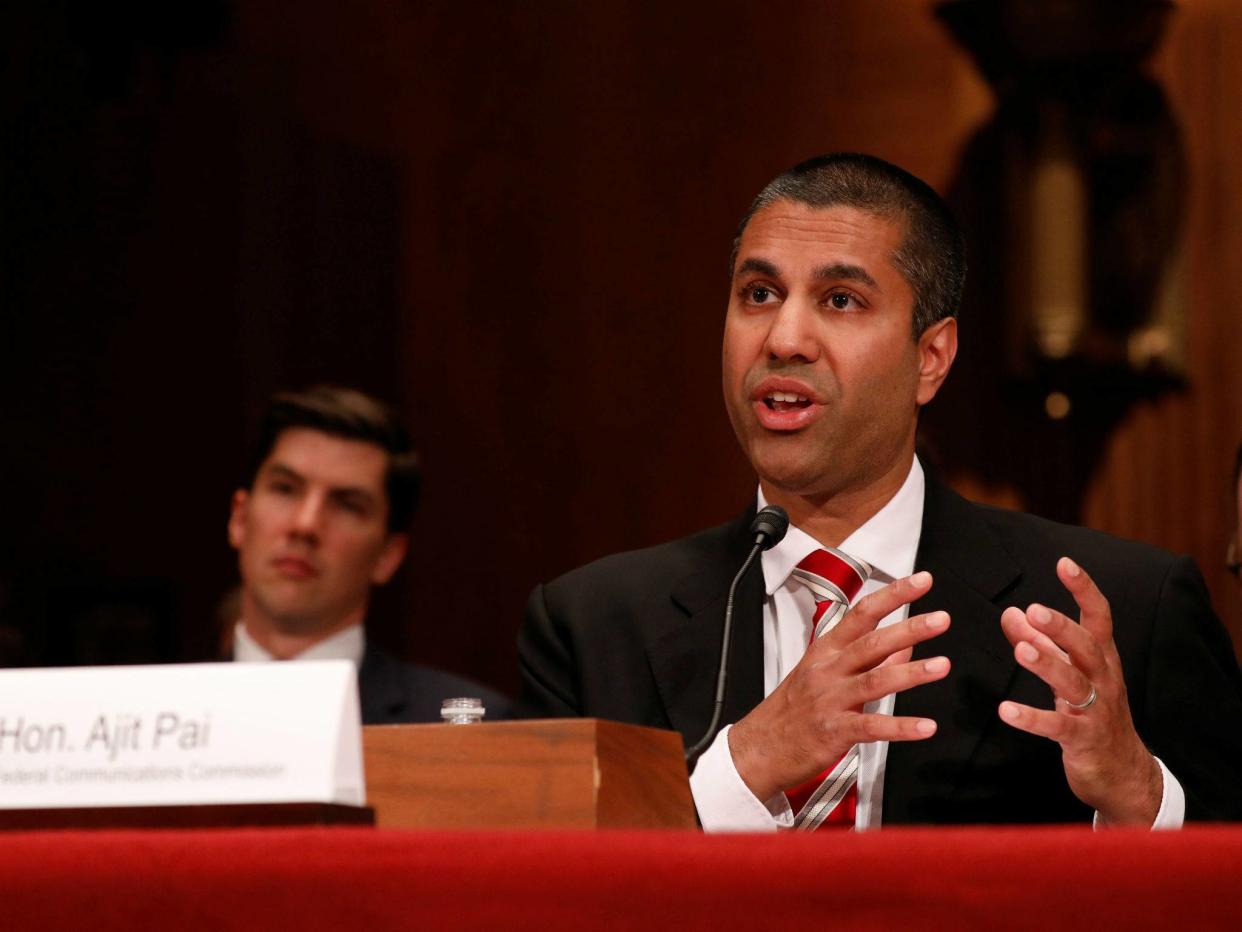FCC scraps media rules preventing one company from dominating local news

The Federal Communications Commission has voted to scrap rules that prohibited companies from owning multiple news sources in a single region.
Commissioners moved to eliminate the rules on a 3-2 vote, overriding objections that the move would clear the way for greater consolidation in a media industry that is increasingly dominated by a handful of large players.
“We have paved the way for a new crop of media broadcast empires,” said Commissioner Mignon Clyburn, who voted against the move, adding that doing away with the rules would “amplify the influence of a small number of companies”.
The vote did away with a rule prohibiting an entity from owning both a newspaper and a TV or radio broadcast station in a single market. It also jettisoned a rule prohibiting ownership of multiple TV broadcast stations in areas with fewer than eight independent stations.
Backers argued that those rules had become obsolete in an era when consumers get updates all day from online publications and their social media feeds. They said the change would benefit struggling newspapers by allowing them to secure financial backing from large companies.
“With the newspaper industry in crisis it makes no sense to place regulatory roadblocks in the way of those who want to purchase a newspaper”, Commissioner Ajit Pai said, adding that “the media ownership regulations of 2017 should match the media market conditions of 2017”.
Commissioner Brendan Carr argued that in cases where exemptions to the rules had been permitted, “those combined operations are producing more local news”.
But dissenters rebutted that the FCC was adopting the wrong changes to respond to a rapidly changing media landscape.
“We are not going to remedy what ails our media today with a rush of new consolidation,” Commissioner Jessica Rosenworcel said before voting against the proposal, cautioning against “a handful of companies controlling our public airwaves” and predicting that “consolidation will make our stations look less and less like the communities they serve”.
Critics of industry consolidation have flagged a pending deal that would allow Sinclair Broadcast Group to acquire Tribune Media — a merger that would put the media giant’s content before some 72 per cent of American households across 108 different markets, according to a filing with the Securities and Exchange Commission.
Democrats have assailed that proposal and asked for an investigation of whether Mr Pai was an impartial participant, charging in a letter to FCC Inspector General David Hunt that Mr Pai had “paved the way” for the merger after meeting with Sinclair executives.

 Yahoo News
Yahoo News 